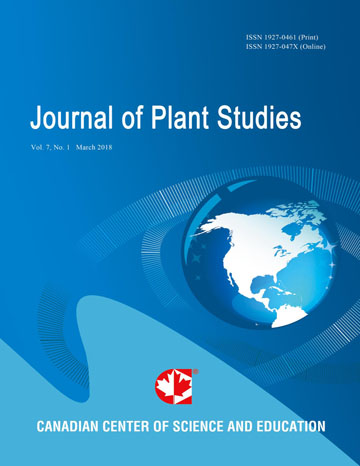Effect of Size of Polybag on Survival and Growth of Mango Grafts
- P. M. Haldankar
- Y. R. Parulekar
- M. M. Kulkarni
- K. E. Lawande
Abstract
Mango is the most important fruit crop of India’s western coast. Mango is commercially propagated by epicotyl grafting. Presently, epicotyl grafts are prepared in 6” × 8” poly bags which restrict root growth and such grafts take longer time for establishment in the field and growth is reduced. Hence, experiment was conducted for optimizing the size of poly bag for cv. Alphonso and Kesar for vigorous growth of epicotyl grafts. The investigation was undertaken in Randomized Block Design with four treatments viz. T1-10” × 14” bags (Alphonso grafts), T2-10” × 14” bags (Kesar grafts), T3-6’’ × 8’’ bags (Alphonso grafts), T4-6’’ × 8’’ bags (Kesar grafts) replicated five times with a unit of 200 grafts per treatment per replication. The sprouting and survival percentage was not affected by size of bags. Among all the treatments, the larger size bags of T1 and T2 improved the vigour of grafts remarkably by producing longer tap root, greater root spread and more number of secondary roots with increased plant height, girth at collar, number of leaves per graft and plant spread over the small sized bags in treatment T3 and T4. The RGR recorded in T1 and T2 was better than that of T3 and T4.
- Full Text:
 PDF
PDF
- DOI:10.5539/jps.v3n1p91
Index
- AGRICOLA
- CAB Abstracts
- CABI
- CAS (American Chemical Society)
- CNKI Scholar
- Elektronische Zeitschriftenbibliothek (EZB)
- Excellence in Research for Australia (ERA)
- Google Scholar
- JournalTOCs
- Mendeley
- Open policy finder
- Scilit
- Standard Periodical Directory
- Technische Informationsbibliothek (TIB)
- WorldCat
Contact
- Joan LeeEditorial Assistant
- jps@ccsenet.org
